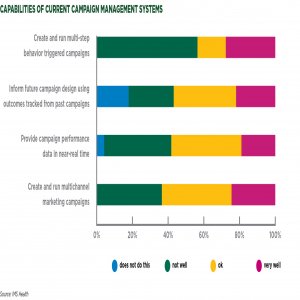A Unique Partnership to Promote Nutrition
STORY INLINE POST
Eating habits in Mexico are at a critical point. The established diet, consisting mainly of fried foods, cheese, and complex carbohydrates, has caused the obesity levels in the country to increase at an alarming rate. Around one in four children and one in three teenagers in Mexico are now obese, according to a report by the Global Agricultural Information Network (GAIN). The implications of these statistics are significant meaning that the actual nutritional deficits will continue to be problematic for generations to come. In 1989, when the Mexican epidemiological profile was undergoing a transition, the government recognized the need to focus on chronic diseases caused by the increasing obesity problem. As a result, the Nestlé Nutrition Fund (FNN) was established through collaboration between Nestlé Switzerland and FUNSALUD in order to address a specific need, namely improving nutrition education within Mexico’s medical schools.
Ernestina Polo, Coordinator of the FNN program, explains that at the time that FNN was created, Mexican doctors had little experience in nutrition, creating an education gap that FUNSALUD and Nestlé sought to bridge. From the beginning, FNN has faced the challenge of adapting to Mexico’s changing healthcare environment and needs of the population because of the demographic, epidemiologic and nutritional transitions.
In this way, the programs implemented by the FNN have often been extensive and wide-reaching. One example is a campaign to modify medical school curricula to include more information about nutrition. This program has seen collaboration with the Mexican Association of Faculties and Schools of Medicine (ANFEM) to educate faculties, build laboratories, and supply them with state-of-the-art equipment. The results of the project include the book “Nutriología Médica” (Medical Nutrition), first published 20 years ago with a fourth edition released this year. It directly addresses the required changes in curricula and the education gaps perceived in medical students, cowritten by both a doctor and a nutritionist.
The Fund carries out research and surveys about nutrition related matters, but tends toward involvement in directly approaching researchers in academia and the health sector, government officials and decision makers. The previous coordinator of the FNN, Dr. Pedro Arroyo Acevedo, structured the Fund to address four specific topics: the promotion of basic research, applied research, the development of human resources, and the diffusion of knowledge. Under his direction, groundbreaking research was carried out, such as an applied investigation that analyzed Mexican anthropology to determine the population’s nutrition patterns. Dr. Arroyo also inaugurated the first Nestlé Nutrition Conference with the goal of facilitating the diffusion of knowledge, and in early 2016, the FNN will publish the conference’s findings about diabetes in Mexico. However, while FNN has always had the full financial support of Nestlé, it maintains complete control of its projects and resources.
The most effective way to address Mexico’s obesity crisis, according to Polo, is ensuring collaborations between all members of the public, private, and academic sectors. One of the main objectives of the FNN is to bring these groups together to facilitate discussion about the main topics affecting the population, which can be challenging due to fundamental differences in operations.
A further goal for the FNN is to support the government’s agenda by providing information that remains unaddressed by other sectors. The FNN awards the Nestlé Nutrition Award every year for outstanding research in the field of nutrition. On November 18th 2015, the Fund will issue a call for research papers while seeking to incorporate large institutions into the evaluation process, with the aim of including the UNAM, the Autonomous University of the State of Morelos (UAEM), and the Autonomous Metropolitan University (UAM), among others.
The FNN is currently writing a new book regarding children’s physical activity, which was coauthored by professors of physical education and is a joint project between the FNN, FUNSALUD, UAEM, the Secretariat of Public Health of the State of Mexico, UNAM, INMEGEN, and Nestlé, and which will be released in late 2015.
According to Polo, the books offer a more comprehensive insight into the health sector. “The greatest strength of our books,” she believes, “is that they are joint efforts from many actors in the health sector, including companies, the public sector, researchers, and students.”























